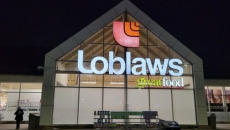VANCOUVER — It was a day Heather Hobbs recalls vividly: the staff at AIDS Vancouver Island had pulled another overdose victim from the washroom, his body was blue from a lack of oxygen.
The man was revived and they closed the office in Victoria to allow staff to regroup. At the same time, in an alley just a half a block away, another of their clients was dying from an overdose.
Hobbs said she remembers seeing the man leave the facility as they began cleaning up from the overdose. His death was the tipping point for the implementation of an overdose prevention site at their facility, even though they weren't yet legal, she said.
"I feel like it's possible, had we not had to have closed, that he would still be alive. So it's those moments that stick with me and really drive it home that these spaces are essential in terms of keeping people alive," said Hobbs, who is the manager of harm reduction services for AIDS Vancouver Island.
In April 2016, the B.C. government declared a public health emergency in the overdose crisis, allowing for the unprecedented implementation of the prevention facilities. Within weeks, 20 sites had mushroomed around the province.
A new study by researchers at the Canadian Institute for Substance Use Research concludes the rapid implementation of the sites should be used as a template for other governments to save lives.
The study says the quick response of the provincial government and community groups is an "international example of an alternative to the lengthy and cumbersome sanctioning processes for (supervised consumption sites.)"
The report, published this month in the International Journal of Drug Policy, says other government demands for public consultations and an intensive application process "are highly questionable in the context of legal drug poisonings and evidence-based alternatives such as (overdose prevention sites.)"
Health Canada approves the supervised consumption sites, which require an exemption from federal drug laws, while the overdose prevention sites in B.C. are sanctioned under the provincial health minister's declaration of a public health emergency.
Bruce Wallace, co-author of the report, a scientist at the institute and an associate professor at the University of Victoria, said the study demonstrates how unnecessary the approval process is elsewhere.
"Our research is showing that the benefits of being able to have overdose prevention sites at so many different locations and really integrated with housing, health and social support is a model to go for, rather than going back to the federal processes, which are more onerous to set up and more limited in scope."
The BC Coroners Service said 991 people died of illicit drug overdoses in 2016, 1,486 died the next year and 1,510 were killed by illicit drugs in 2018. The dramatic rise in deaths coincides with emergence of the powerful opioid fentanyl, which the coroner says is responsible for the majority of illicit drug deaths.
In the province, drug poisoning deaths this year equate to about 2.9 deaths a day, said the City of Vancouver in a statement Sunday as it marked the three-year anniversary of the province's public health emergency. The city flew its flag at half-mast to recognize the lives lost and said it would continue to do so on each subsequent anniversary until the provincial health officer rescinds the current state of public health emergency.
Canada's Public Health Agency said last week that 3,286 people died of apparent opioid-related deaths between January and September last year.
The report draws on interviews from staff at three of the prevention sites in Victoria to determine their impact.
Wallace said he's frustrated that other jurisdictions in Canada aren't adopting the same innovate practices to save lives, especially because they've been warned that dangerous opioids are moving into their provinces.
"So to have that level of warning of the potential harm and not act, it's really tragic that people would not take these lessons and adopt them as fast as they can in other jurisdictions."
The Ontario government announced in late March that while 15 overdose prevention sites had been approved, six others would close, including three in Toronto.
Judy Darcy, B.C.'s mental health and addictions minister, said there are about 40 overdose prevention sites across B.C. with over one million visits. Thousands of overdoses have been reversed and there have been no deaths at the sites, she added.
Darcy said it's estimated the government's actions, including the prevention sites, take-home naloxone kits and other prevention measures, have saved about 4,700 lives.
She said the prevention sites are a critical tool that also connect visitors to other supports, such as housing or treatment. But the stigma remains, Darcy said, and that is the next barrier to knock down.
"For too long we have treated mental health, mental illness as a sign of weakness and addiction as a character failure and as a sign of moral failure," she said. "These centres don't judge people. They're there to save lives, they're there to connect people to the social supports they need."

